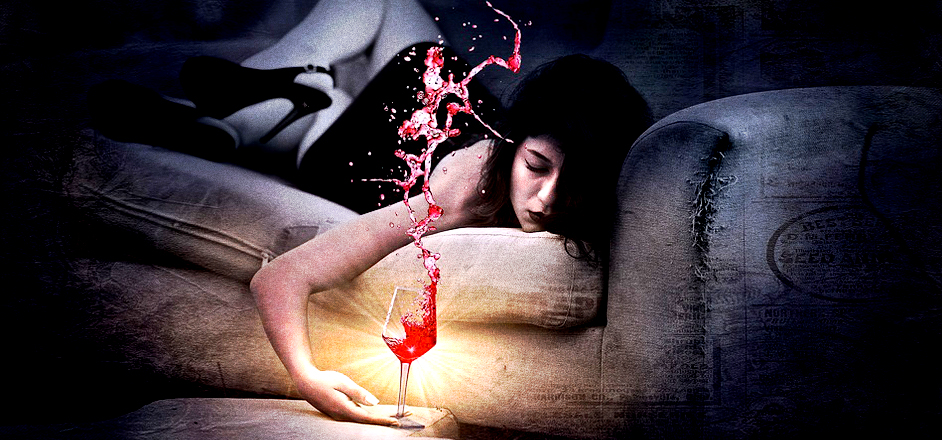Alcohol is considered one of the usual suspects of moral crimes, the main culprit in bad decisions, the thing that fucks best friends’ girls.
“It wasn’t me, it was the alcohol! I was drunk, it doesn’t count.”
The scientific fact that alcohol directly interferes with our inhibition and ability to think clearly is as wide-spread as alcohol itself. As Dr. Joshua Gowin, a postdoctoral fellow at the National Institute on Alcohol Abuse and Alcoholism, points out in Psychology Today, “Drunken brains are primed to seek pleasure without considering consequences.”
This is a big part of the reason why “having one drink and going home” has turned into the most common lie drinking buddies tell themselves before going to a bar.
“You can’t do what you intended to do,” Craig Beck, author and ex-alcoholic, explains. He says drinking lowers the self-restraint. It resembles Hercules fighting the Hydra — from each drink stems the desire for two more rather than relieving the urge once and for all, at least for that particular moment in time.
Dr. Bruce Bartholow led researchers from the University of Missouri in the search for an answer to the million-dollar question: To what extent is alcohol responsible for bad choices?
Researches separated participants into three groups. They gave alcohol to one, soft drinks to another, and the third was a placebo control group. Everybody there was asked to complete error recognition tasks after drinking. In short, the study revealed one major difference between the drinkers and the other two groups of non-drinkers, and it wasn’t the awareness of making mistakes — the drinkers just cared less.
The study goes on to explain that the immediate, automatic response to an error might be hindered by alcohol, but not the overall process of recognizing your actions.
“Under normal (i.e. sober) conditions, the brain’s error-monitoring system sends a signal — a fire alarm — whenever one does something that violates a current goal or personal standard,” Dr. Bartholow tells Rooster Magazine. “When intoxicated, however, that alarm is quieted to a degree — it still rings, but not as loudly as usual.”
It seems like some people’s fire alarms might be out-of-battery to begin with, or the drunk voice of the little devil on their shoulder silences them completely.
Dr. Bartholow considers the question of whether people’s drunk actions can speak for their true colors more philosophical in nature.
Classic excuses for cheating such as “one thing led to another” and “it was an accident” are as absurd as justifying hit-and-run accidents on shock and panic — perhaps there can be a momentary lapse of judgement at best, but the whole thing requires myriad actions to carry out, which means one has myriad chances to stop.
Alcohol doesn’t bring to the surface anything that wasn’t already bubbling underneath it.
As Jean-Jacques Rousseau once said, “A drunk mind speaks a sober heart.”



Leave a Reply
You must be logged in to post a comment.